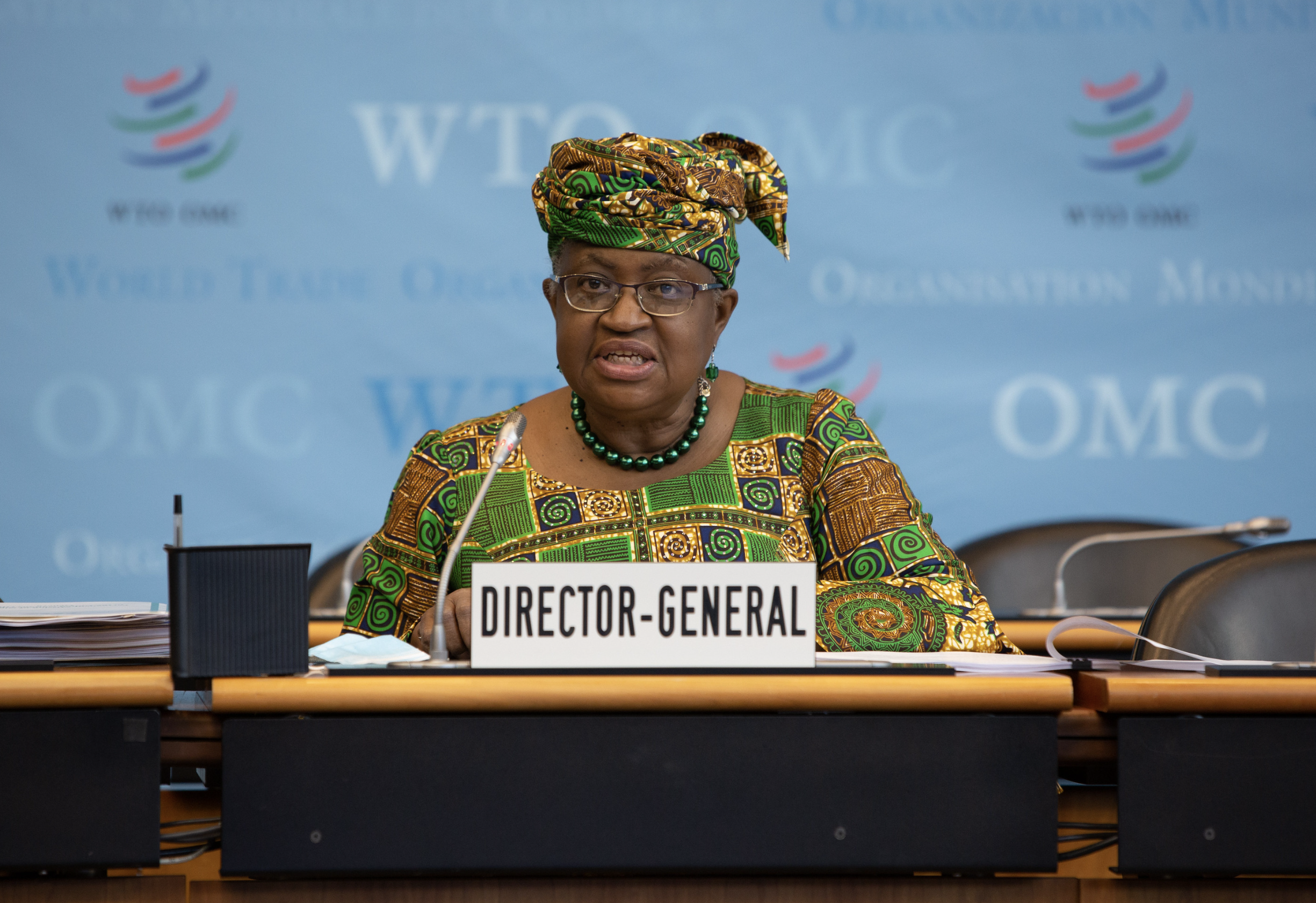1994 Uruguay Round Agreements
1996 Information Technology Agreement
1997 Financial Services Agreement
1998 Basic Telecommunications Agreement
1999 “Moratorium” on Tariffs on Electronic Transmissions
2013 Trade Facilitation Agreement
2022 Agreement on Fisheries Subsidies
Wrapping up their 12th Ministerial Conference (“MC-12”) at 4:30 a.m. last Friday after a 48-hour negotiating marathon, WTO members announced a set of agreements on electronic commerce, fisheries subsidies, and other matters. Temporarily stepping a long way back from their content, here is context from Franklin Roosevelt’s March 1945 letter to Congress announcing the opening of the world’s first “multilateral” trade negotiations:
“The point in history at which we stand is full of promise and of danger. The world will either move toward unity and widely shared prosperity or it will move apart into necessarily competing economic blocs. We have a chance, we citizens of the United States, to use our influence in favor of a more united and cooperating world. Whether we do so will determine, as far as it is in our power, the kind of lives our grandchildren can live.”
Two years later, these first set of talks ended without achieving all Roosevelt or Truman (whose administration completed them) had hoped for, but with a 23-country tariff-reduction accord known as the General Agreement on Tariffs and Trade. This, the “GATT,” is the direct ancestor of the modern, 164-member World Trade Organization. Whether the “grandchildren” in question — say, those born in 1980 and afterwards — have in fact lived in a world of “widely shared prosperity” is a controversial subject, though they have incontestably lived in a world of steadily falling poverty.*
Unity is another question. After eight agreements of steadily escalating scope from 1947 through 1994, and four in the later 1990s, the WTO has spent most of the 21st century in increasingly bitter policy stalemate. The organization’s most ambitious goal — the Doha Round, launched in 2001 — never got done, as the membership deadlocked between a liberalizing wing and an India/South Africa/Brazil/China “policy space for developing countries” wing. Up to last week its members had managed only one new agreement (the 2013 Agreement on Trade Facilitation) since the turn of the century. Since then, the Trump administration’s blockage of the WTO’s dispute function eroded the group’s ability to settle arguments over existing agreements; and U.S.-China tariff confrontation, inward policy turns and rising nationalism in a series of major economies, and finally the unprovoked invasion of one WTO member by another raised direct questions about the organization’s ability to function, and more broadly whether appeals to common interests and liberal internationalist ideals of Roosevelt’s type still find listeners.
Last week’s events suggest the cautious answer is that yes, they probably do. A slightly more detailed review of the “MC-12” decisions includes: (1) extension of the 23-year-old international “moratorium” on impositions of any tariffs on electronic transmissions; (2) a compromise text on intellectual property waivers for Covid-related vaccines, diagnostics, and therapeutics; (3) a program for ‘institutional reform’ meant to be concluded by 2024; (4) guidelines for agricultural stockpiles and export controls, and (5), a wholly new agreement on worldwide fisheries subsidy controls, completed after two decades of discussion, as follows:
All in all, a reminder that even in times of distress and division, governments with good will can reach common goals through good-faith negotiation, and address common threats through pragmatic agreement. Roosevelt’s fear of a world divided into “necessarily competing economic blocs” (or one that simply fractures and fragments) remains very relevant today; but the aspiration he expresses for widely shared prosperity has resonance still.

The WTO membership’s MC-12 decisions.
Direct-General Dr. Ngozi Okonjo-Iweala (pictured above) closes the Ministerial.
And Deputy Director-General Anabel Gonzalez has an inside-the-WTO assessment.
Fishery subsidies:
Governments subsidize fishing fleets at about $20 billion a year, with the largest sums coming from China, the U.S., the European Union, Japan, and Korea. The idea of a WTO agreement to cut or eliminate subsidies contributing to over-fishing was first raised in the 1990s during the Clinton Administration, and WTO talks on the topic officially began in 2001 with the Doha Declaration. (Its wording: “The ministers mention specifically fisheries subsidies as one sector important to developing countries and where participants should aim to clarify and improve WTO disciplines”). Here’s an estimate of fishery subsidies.
An informed reaction from International Institute for Sustainable Development.
NOAA on illegal, unreported, or unregulated fishing.
A comment from U.S. Trade Representative Katherine Tai.
And a reminder of the point of it all:
Roosevelt to Congress on the launch of the first multilateral trade negotiations.
Ed Gresser is Vice President and Director for Trade and Global Markets at PPI.
Ed returns to PPI after working for the think tank from 2001-2011. He most recently served as the Assistant U.S. Trade Representative for Trade Policy and Economics at the Office of the United States Trade Representative (USTR). In this position, he led USTR’s economic research unit from 2015-2021, and chaired the 21-agency Trade Policy Staff Committee.
Ed began his career on Capitol Hill before serving USTR as Policy Advisor to USTR Charlene Barshefsky from 1998 to 2001. He then led PPI’s Trade and Global Markets Project from 2001 to 2011. After PPI, he co-founded and directed the independent think tank ProgressiveEconomy until rejoining USTR in 2015. In 2013, the Washington International Trade Association presented him with its Lighthouse Award, awarded annually to an individual or group for significant contributions to trade policy.
Ed is the author of Freedom from Want: American Liberalism and the Global Economy (2007). He has published in a variety of journals and newspapers, and his research has been cited by leading academics and international organizations including the WTO, World Bank, and International Monetary Fund. He is a graduate of Stanford University and holds a Master’s Degree in International Affairs from Columbia Universities and a certificate from the Averell Harriman Institute for Advanced Study of the Soviet Union.
Read the full email and sign up for the Trade Fact of the Week